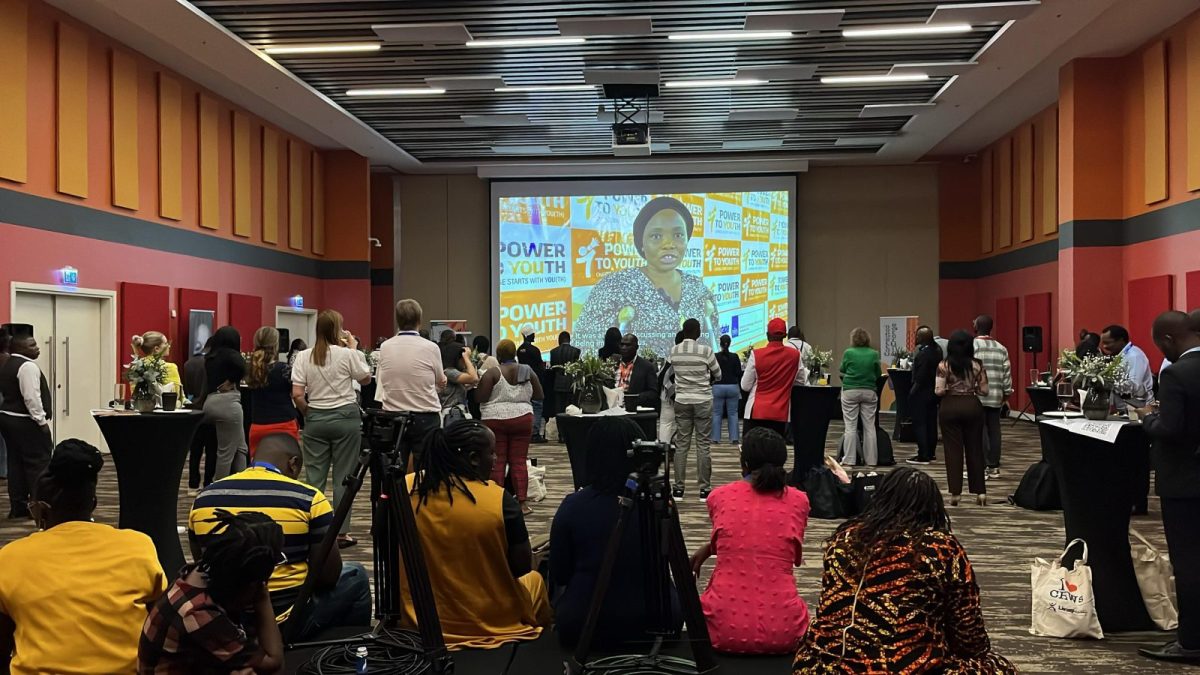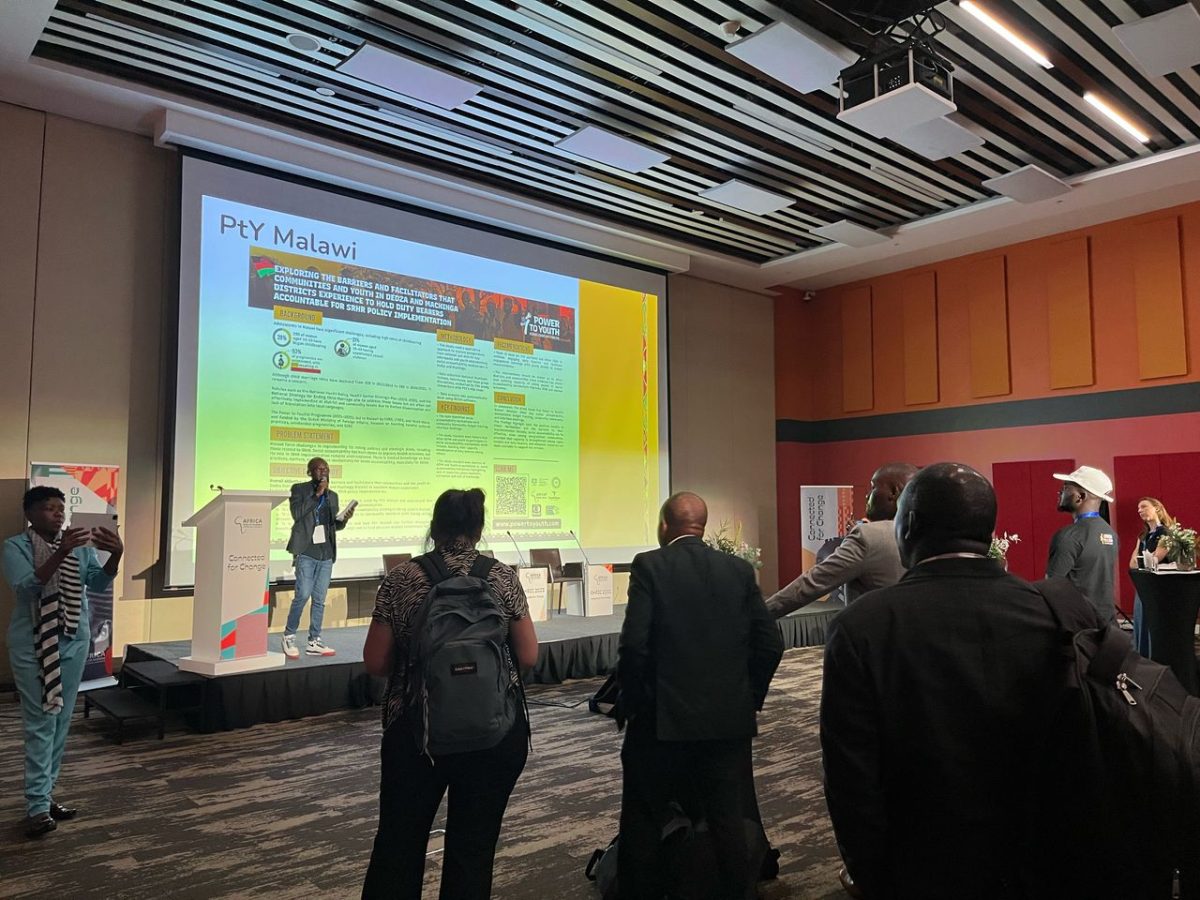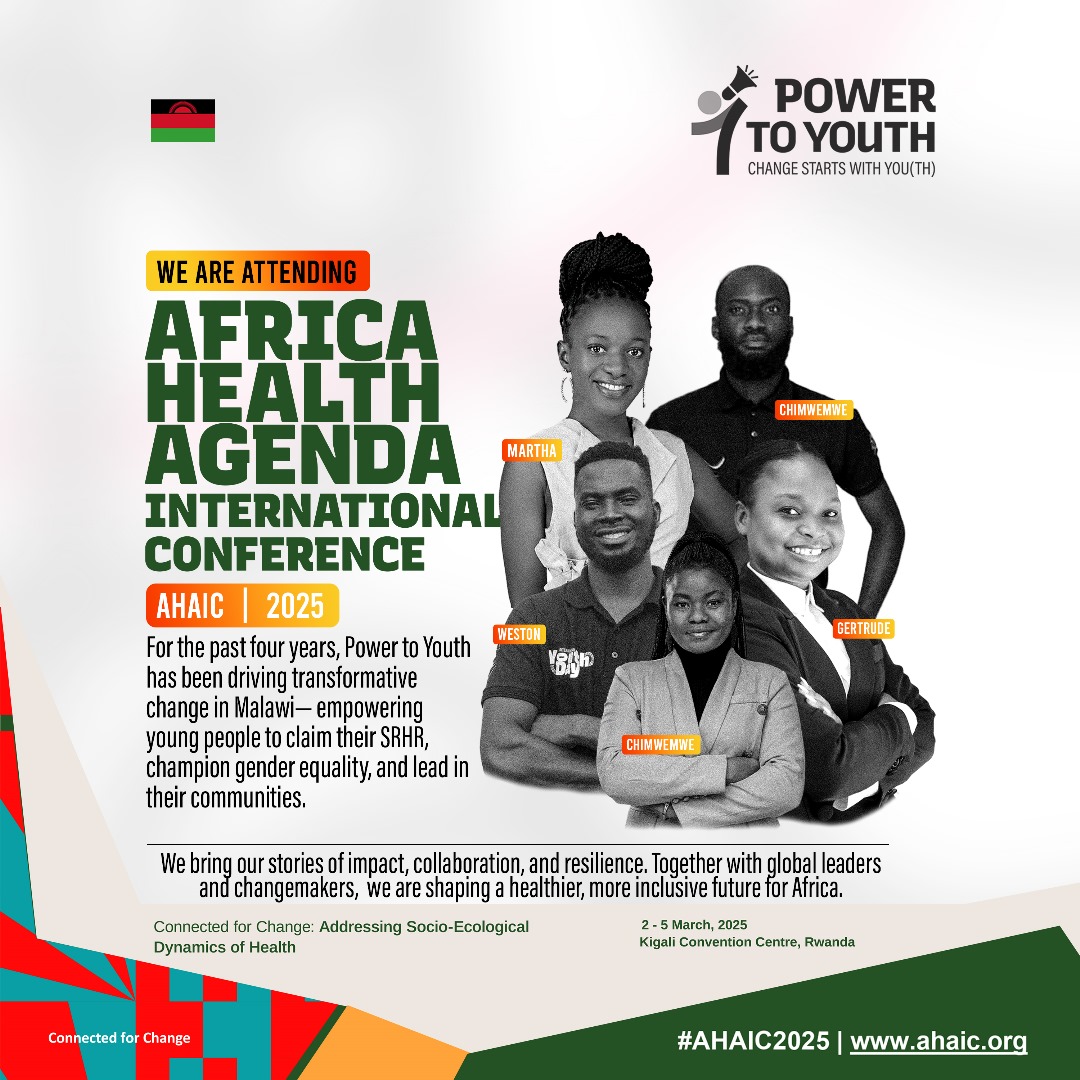Young leaders of the Power To Youth program were part of insightful conversations and knowledge sharing at the Africa Health Agenda International Conference (AHAIC) held in Kigali, Rwanda, from the 2nd to 5th of March 2025 under the theme Connected for Change: Addressing the Socio-Ecological Dynamics of Health. The AHAIC was an opportunity to revitalize and bring innovative ideas on transforming health. It also sought to rewrite the health narrative while proposing holistic solutions to health challenges in Africa.

Given that the PTY program exists to empower young people, make them heard and seen, youth advocates from Malawi engaged during this conference by bringing in their perspectives and sharing their hopes of what they want to see for health transformation in Africa.
As Martha Moyo, Advocacy Officer at Amref Malawi joined the AHAIC, she was keen on engaging with stakeholders through her perspective centered on gender equality and legal harmonization to protect the rights of adolescent girls and young women from harmful cultural practices. In her capacity of an Advocacy Officer, her aspiration was to take part in discourses informing policy change and policy shift.
”I hope that the engagements from AHAIC 2025 will amplify youth voices, inspire policy changes, increase youth participation in decision making processes and secure more funding for programs that empower adolescents, women, and youth. It should also focus on strengthening health systems to address sexual and reproductive health -SRHR barriers and promoting inclusive youth participation” said Moyo.
While the youth has worked directly in communities, their lived experiences in advocating for Sexual and Reproductive Health issues were critical in shaping the discussions at AHAIC. Weston Mfunya is a youth leader and Programs officer at Youth Wave Malawi and has worked in communities over the years. He focused on bringing his field experience to inform the discussions held on improving and setting a health agenda that serves and addresses communities’ realities.
”As a youth leader attending AHAIC, I bring a unique perspective shaped by my experiences working with young people in our communities in the following areas:
1) Leading interventions that amplify youth voices in health policy and decision-making processes.
2)Developing and implementing youth-centred health programs, focusing on education, economic empowerment, and social determinants of health.
3) Working with governments, international partners, and civil society organisations to strengthen health systems, improve healthcare access, and enhance health outcomes.
4) Advocating for increased investment in health systems, particularly focusing on marginalized communities.
Through this conference I will ensure that young people’s perspectives, concerns, and ideas are integrated into the conference discussions and outcomes. I will encourage dialogue and partnerships between youth leaders, experts, and policymakers to drive collective action and innovative solutions. I also hope to push for greater investment in health systems, particularly interventions focusing on rural populations,’ shared Mfunya.
Discussing access to health was also an important aspect that youth hoped to raise during the AHIAC. This is because attaining health coverage across the African continent is not feasible without looking into issues that prevent women, girls, and youth from being able to access sexual and reproductive health rights services in communities. ”Most services in African communities are not youth-friendly enough to offer appropriate services” This is according to Chimwemwe Kayange, programs officer at Power To Youth Malawi ,who focused on advocating for health equity.
”As a programs officer and a young SRHR advocate from Malawi, I bring a perspective that is rooted in ensuring equitable access to reproductive healthcare, education, and services for all youth. At AHAIC, I hope to dive into discussions that empower young people, especially women and girls, to make informed decisions about their bodies and health. I envision using this platform in advocating for the importance of adequate funding for SRHR while also conducting domestic polling on SRHR financing. This will ensure that young people have the resources and support necessary to lead healthier lives” Kayange said.
Evidence-based conversations and agenda-setting, a hallmark for making informed decisions and choices, were critical areas for Chimwemwe Chisale, Monitoring and Evaluation Officer at Centre for Youth Empowerment and Civic Education (CYECE). Evidence generation is important for health outcomes and decisions because it guides fact-based discussions and translates to successful advocacy.
”With a strong background in research, I bring a unique perspective to the AHAIC conference by emphasizing the importance of evidence-based decision-making in implementing SRHR policies and improving service delivery. My work with youth-focused programs, such as Power to Youth, has provided valuable insights into the challenges and opportunities young people face in accessing health services.” Chisale.
During the conference, Chisale presented the groundwork in Malawi and how the central operations research was critical in identifying and addressing health challenges faced by adolescent girls and young women.
”I presented findings from operational research on social accountability monitoring, which highlight the critical role of young people in ensuring transparency and accountability in SRHR service delivery. These findings provide actionable recommendations for enhancing youth engagement in policy implementation and fostering greater collaboration between young people and stakeholders to improve health outcomes.” He adds.

Based on his passion for research, Chisale aspirations were to, through his experience, advocate for transformative health systems and linking and learning opportunities among participants.
”Through engagements at this conference, I hope to inspire transformative approaches in addressing health challenges faced by young people, particularly in SRHR. Sharing best practices, innovative solutions, and lessons from programs like social accountability monitoring will empower young people to actively participate in health programs and policy processes.”Chisale emphasizes.
The Youth are not just passive recipients and beneficiaries of change but the main actors ,given that they form the majority of Africa’s population. Chisale wants to see young people at the centre and at all levels meaningfully engaged in all processes for setting the health agenda.
”I envision a future where young people are not just beneficiaries but also key drivers of innovations in addressing health challenges. By equipping them with the tools and knowledge to advocate for their needs, I believe this conference will pave the way for youth-led initiatives that prioritize inclusivity, accountability, and sustainable change in health service delivery.” said Chisale.
Youth participation at the AHIAC 2025 was not only a chance to hear their voices but also to know what they are doing and how they are influencing change in their communities. It was a fantastic opportunity to engage and involve youths in shaping the health narrative, rewriting wrong stories, and setting an agenda from a social and ecological perspective while finding solutions to systemic barriers and unequal power structures that deprioritize African health on the global stage.
By Nkengafack Eucharia


